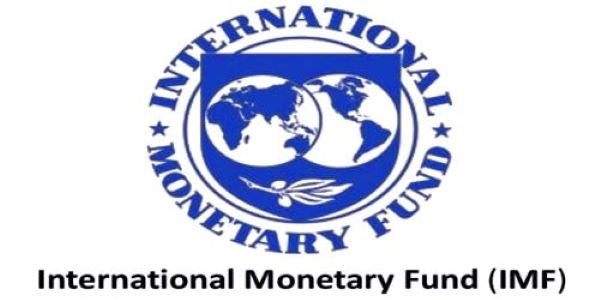The Managing Director of the International Monetary Fund (IMF), Kristalina Georgieva has asserted that economies must seek to maintain favorable financial conditions by embarking on accommodative monetary and financial policies as they step up the fight against the economic crisis wrought by the coronavirus pandemic
Kristalina Georgieva made the following submission in a write up ahead of the G20 finance ministers and central bank governors virtual meeting today, Friday 26 February 2021. The meeting will focus on the need to foster a rapid and transformative recovery from the Covid-19 crisis, and solutions to bringing the global economy back on the path of growth. Also, they will address financial sector issues such as financial regulation, financial inclusion and sustainable finance.
“As our note to the G20 meeting points out, there is a major risk that as advanced economies and a few emerging markets recover faster, most developing countries will languish for years to come. This would not only worsen the human tragedy of the pandemic, but also the economic suffering of the most vulnerable.
“Governments need to build on…efforts by continuing to provide fiscal support— appropriately calibrated and targeted to the stage of the pandemic, the state of their economies, and their policy space.
“The key is to help maintain livelihoods, while seeking to ensure that otherwise viable companies do not go under. This requires not just fiscal measures, but also maintaining favorable financial conditions through accommodative monetary and financial policies, which support the flow of credit to households and firms”.
Kristalina Georgieva
The IMF Managing Director further opined that considerable monetary easing by major central banks has also enabled several developing economies to regain access to global capital markets and borrow at record-low rates to support spending, despite their historic recessions.
“Given the gravity of the crisis, there is no alternative to continued monetary policy support. But there are legitimate concerns around unintended consequences, including excessive risk-taking and market exuberance”.
Kristalina Georgieva
One risk going forward especially in the face of diverging recoveries is the potential for market volatility in response to changing financial conditions. Major central banks will need to carefully communicate their monetary policy plans to prevent excess volatility in financial markets, both at home and in the rest of the world, Kristalina noted.
Aside from maintaining favorable financial conditions, Kristalina Georgieva held that there is a need to step up support to vulnerable countries because with their limited resources and policy space, many emerging market and low-income nations could soon be faced with an excruciating choice between maintaining macroeconomic stability, tackling the health crisis, and meeting peoples’ basic needs.

Vulnerable countries will need substantial support as part of a comprehensive effort but “the first step begins at home, with governments raising more domestic revenue, making public spending more efficient, and improving the business environment. At the same time, international efforts are critical to further scale up concessional financing and leverage private finance, including through stronger risk-sharing instruments,” she added.
Furthermore, she urged that efforts to end the health crises must be intensified hence, the need for much stronger international collaboration to accelerate the vaccine rollout in poorer countries.
“Additional financing to secure doses and pay for logistics is critical…faster progress in ending the health crisis could raise global income cumulatively by $9 trillion over 2020–25”.
Kristalina Georgieva
Finally, the IMF MD enunciated that these policy measures can help address the ‘Great Divergence’. Given their resources, advanced economies will continue to invest in human capital, digital infrastructure, and the transition to the new climate economy. It is vital that poorer countries have the support they need to make similar investments, especially in the job-rich climate adaptation measures that will be essential as our planet gets warmer.























